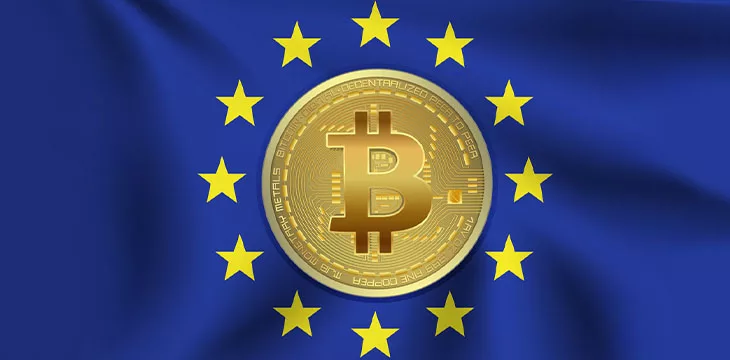|
Getting your Trinity Audio player ready...
|
European Union member states are in agreement on the passage of DAC8, an amendment to the bloc’s rules on data sharing between national tax authorities to include digital assets, according to the European Commission’s Director for direct taxation, tax coordination, and economic analysis and evaluation.
EU ambassadors have unanimously supported DAC8, paving the way for an adoption by the ECOFIN next week. Congratulations to the Swedish Presidency !
— Benjamin Angel (@benjaminangelEU) May 10, 2023
ECOFIN is the Economic and Financial Affairs Council, which is the European Union organization responsible for economic and tax policy in the bloc. ECOFIN is set to meet on May 16, when the Council is expected to formally agree on its position on the DAC8 amendment.
Under the amended rules, any person or entity that provides digital asset services to users in the EU would be obliged to submit to national authorities data concerning any transaction involving digital assets that can be used for investment and payment purposes. In particular, they must report the names, addresses, transaction numbers, and identification numbers of the parties and exchanges associated with each transaction, as well as the type of assets involved and the amounts paid and received.
The changes also expand the purposes for which the data may be used to include sanctions enforcement, in order to allow ‘necessary action to impose sanctions against Russia.’ Previously, the collected data could only be used for tax purposes.
The rules would also introduce a harmonized minimum level of penalties for failure to comply with the broader data-sharing regime based on the entity’s size in violation. An entity whose turnover is below €6 million ($6.5 million) would face a minimum penalty of €50,000 ($54,686). Those with turnovers above €6 million ($6.5 million) would face a minimum penalty of €150,000 ($164,057), with a higher floor of €500,000 ($546,855) for violations of the DAC’s multinational provisions.
The European Directive on Administrative Cooperation (DAC) was introduced in 2011 and provides for collecting and exchanging tax-related information between EU member states. It is intended to empower national tax authorities to cross-check income streams, prevent tax fraud and evasion, and impose the correct taxes in accordance with national legislation.
Since its inception, the DAC has been repeatedly revised to include more categories of tax data, usually in response to crises and scandals. The last revision came into force in January 2021, when the DAC was expanded to address potentially aggressive tax planning schemes in response to the Panama Papers fiasco.
The amendments would be the latest entry into EU lawmakers’ prolific year in digital asset regulation. The EU approved the landmark legal framework for digital assets in April, the Markets in Crypto-Assets Regulation (MiCA), and its impact can already be seen in the formulation of the DAC8 proposal, which incorporates several of the legal definitions provided by MiCA.
Watch: Why blockchain regulatory oversight is important

 07-14-2025
07-14-2025 





